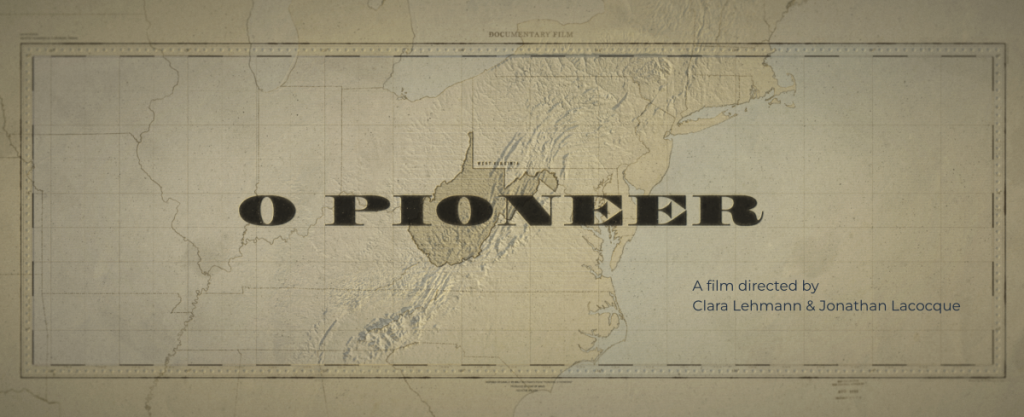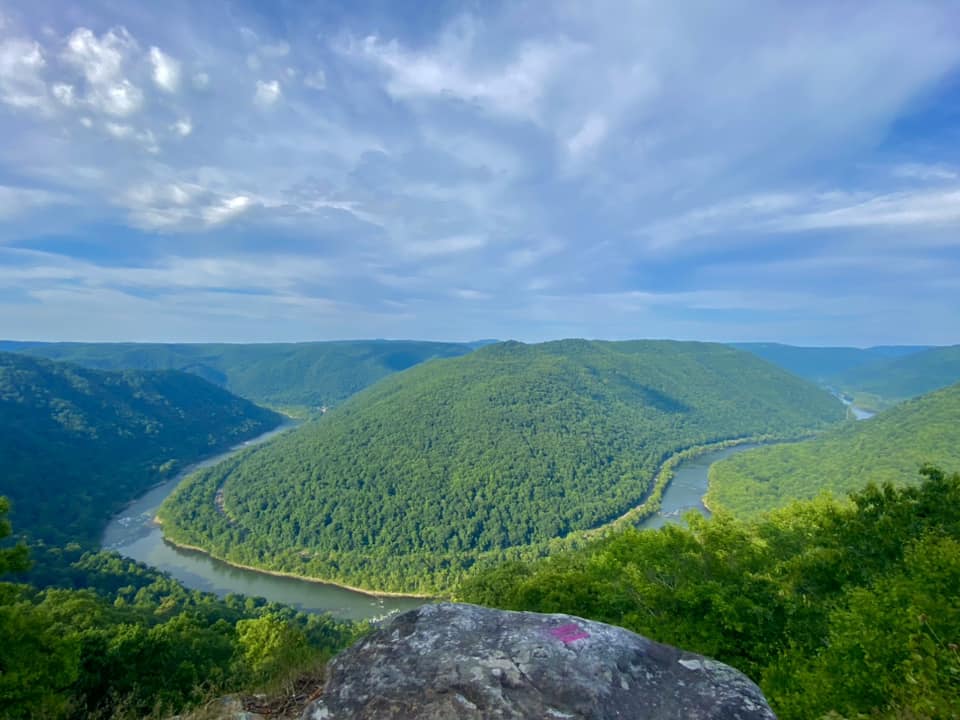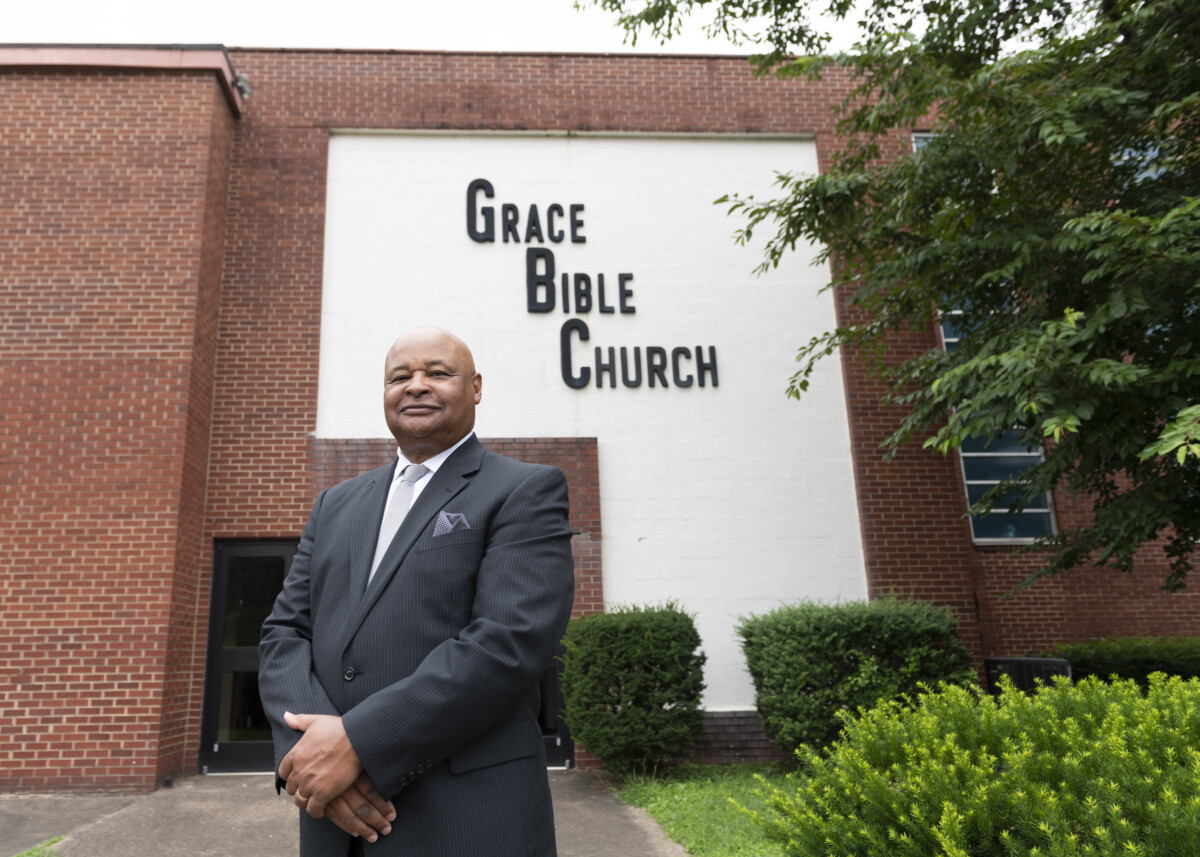We primeval forests felling,
We the rivers stemming, vexing we, and piercing deep the mines within;
We the surface broad surveying, we the virgin soil upheaving, Pioneers! O pioneers!
– Stanza 7 from Pioneers! O Pioneers by Walt Whitman
When we hear the word “pioneer” – especially in the Appalachian context – an image of the mountaineer likely comes to mind. Someone who knew how to live off the land. Pioneers are the classic American example of rugged individualism.
Of course, we know that Appalachian pioneers descended from Europeans and were not the first people in this place. And we have a deeper understanding of the harm caused by colonization, including the forced removal of Indigenous people and the toll that decades of resource extraction has taken on our region’s land and people.
Filmmakers Clare Lehmann and Jonathan Lacocque’s film “O, Pioneer!” is a documentary about three people navigating life during the pandemic who challenge the idea of what – and who – a pioneer is. Laura Harbert Allen spoke with them about the film, which premiered in August at the Cinequest Film Festival where it won the Audience Award for Feature Documentary, and makes its official Appalachian debut at the Mtn Craft Film Festival in Clarksburg, West Virginia, in September.
This interview has been edited for length and clarity.
Laura Harbert Allen: In your description of the film, you write that it “poetically reckons with and redefines the pioneer.” Why was it important for you to redefine that word? How did this all come about?
Clara Lehmann: I think that what happened over the last five to 10 years is this really interesting reckoning that we’re all having as a country and as individuals. And sometimes that happens because of hardships like a pandemic, or because things are unfair and we see those unfairnesses finally. And I think with the word pioneer specifically, I personally as a young woman growing up in Appalachia and specifically in West Virginia, was enamored by the “pioneer,” that they were flawless or faultless. And I really had a moment of recognition that that is not true. And in fact, there are flaws that we need to reckon with.
My grandmother used to recite “Pioneers! O, Pioneers!” by Walt Whitman, and I thought it was very romantic and interesting. And then, as I delved into it as an adult, I was looking at the words in the passages and the meaning of that poem, and it’s much more political and it has a lot of extraction themes in it. And I thought it would be cool to pair this idea with three West Virginians who are moving through the world now to depict how we currently are acting as pioneers, in a hopefully more elegant and more fair way.
Jonathan Lacocque: Even growing up, the way I referred to pioneers was very positive, and I think our intention with this film is for that to remain but to give more nuance to our relationship, culturally, with the pioneers who went out West. To look at these groundbreakers, these inventors, these one percenters that do a lot of good for humanity but look at it in a way that is more nuanced.
Part of the reckoning is finding the balance between being adventurous and being courageous. Sometimes it’s courageous to listen, to wait, to consider your surroundings and the factors involved with what you might be doing in relation to the people and the places you are exploring. So I think that’s very much the root of what we were after with the film.
LHA: That brings me to one of the characters in the documentary, James. He’s a gay man who served as a hospital chaplain during the pandemic, who lives in north central West Virginia. What insights does his role in the film give us when it comes to being a pioneer?
CL: James is one of the most kind and empathetic people you’ll run into. He has an ability to listen and really hear your words and then let those words reflect upon his understanding of his relationship with God and religion. And he can make it so that even the most secular among us feel heard. I tend to not abide by a religion per se and so I hope that other people who watch this film can see and feel that he is creating a lens for understanding religion where it doesn’t have to have so many borders and parameters.
And that’s what pioneers should be doing, breaking down barriers without destroying and being destructive to the cultures or people that are already in place somewhere.
As a gay man, he has probably faced barriers that many of us never face, and he has been denied an ability, many times, to access part of the religious world that he adores. He loves Christianity, and yet, he was not given the ability to champion his skill within that realm. And so this film kind of lets him reckon with it through the pandemic and through hardship, come back home to what he truly is built for on this planet. He’s a great example of that spirit of the pioneer in the film.
LHA: Of course there are two other characters whose lives we witness during the pandemic. Nelly, a seamstress, and Tim, who is a blacksmith. How do they embody the pioneer spirit?
JL: Nellie, whom we met several times when visiting Thomas, West Virginia, she’s a textile or dye artist and seamstress. There’s a visual quality to a lot of what she does that connected nicely with what we were trying to do visually in the film. But then she as a person also has a similar way – just like Tim and just like James – of looking at the past with respect and trying to live presently with care, of thinking carefully about what she’s doing and how she’s doing it.
An example of that is during the pandemic, she closed her shop and decided to start making masks for people who work in the medical field. That took a lot of courage and is a really lovely example of being a pioneer.
Tim, I mean, he’s a blacksmith so that automatically connects in some ways to pioneering times, and he even speaks a lot to that with his parents, describing what his upbringing was like, going to fairs and seeing artisans and makers and people who are building something from nothing.
CL: He talks about going to pioneering events or just loving the old traditional ways of doing arts and crafts. And in how he is living, like cooking outside, you know, things that are a little more rustic. He envelops that in his life and in his art and his craft, and so this made sense on that traditional level, of what you traditionally think of as a pioneer as in Walt Whitman’s poem. He envelops some of those qualities without being extractionist. So what he’s doing every time he’s recycling parts for his craft and his art, he’s giving back to the community.
He’s encouraging other families and individuals to participate in the art community by creating a space for them to show their art. And in the Buckhannon area, he is a homeschool father who is taking on what’s not traditionally the male role. He and his wife are equal partners in so many ways and respect each other so much and they’re both artistic and encouraging that within their children.

LHA: You made this film in the middle of the pandemic. The past three years feel so strange in some ways. On one hand, I feel like March of 2020 was yesterday and some days, I feel like it was like 10 years ago. Did the pandemic sort of help to remind us that we are all pioneers?
CL: That is very much at the core of the film. We want to ask that question to everybody, and our hope is that everybody sees if not that they are pioneers that there is the potential to be one again even in the smallest of moments. And I think that the approach is one of listening and care and empathy and to aspire to see their natural ability to be a pioneer.
LHA: Also you’re portraying West Virginians. Appalachians. And there are ways that Appalachians are portrayed in the media and there are ways that they’re not. I wonder if you could talk briefly about how your subjects move through West Virginia and what that means in terms of Appalachian identity.
CL: I think when you’re from West Virginia, you get it intimately. You immediately understand it. You’ve seen it, you’ve felt it yourself. Many of us have left the state and returned, or we go on adventures outside the state and return, and we have seen these ugly comments that come up. And we have felt the immediate disregard for an identity. We’ve all heard the comments. “You’re not like them because you don’t have that accent,” or other vulgar things. We all have learned all the comments that we make back in order to either sidestep it or face it head on.
And I think what this film tries to do is demonstrate very clearly that every single state, every single country has multiple layers to it, and yes, there may be elements to our culture that are not always positive. We struggle with some very serious problems, but we are not only those problems. And you should not depict a whole community in one light, because what it does is destroy it. If you destroy a community, they can’t come back from that.
I want this film to give us some light and give us something we’re proud of. And I hope that West Virginians are proud of these three people because they really are special, and they are you. And they’re us.
Laura Harbert Allen is a Report for America corps member covering religion for 100 Days in Appalachia. Click here to help support her reporting through the Ground Truth Project.



